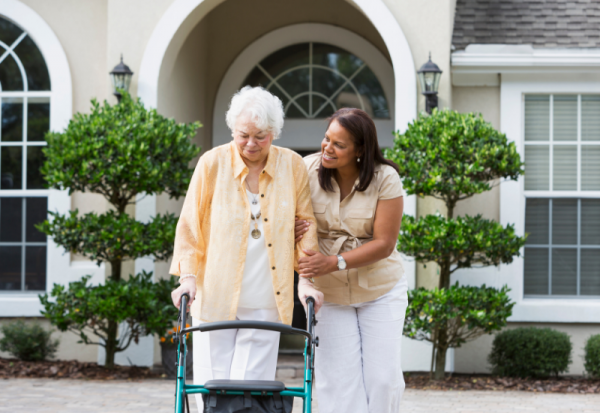Author: Cara Jenkin
If you had told your grandparents when they were growing up that one day there would be workers employed to help them stay fit, coaching them to run and lift weights, they probably would not have been able to imagine it.
But personal trainer today is an important job and a sought-after service, as the workforce shifts from one that increasingly focused on human services.
Whether it be healthcare, retail, hospitality or education, human services industries are providing an increasing number of jobs.
Healthcare and social assistance is Australia’s largest employing industry, employing 14 per cent of all workers.
Retail has the second largest workforce, employing one in 10 workers.
And in the next five years, more than 250,000 workers will need to be found and trained in the skills required to meet the need of the burgeoning human services sector, and 750,000 workers in total by 2050.
Workers will be needed for traditional roles such as nurse, doctor, sales assistant, teacher, physiotherapist and counsellor.
But there are many more roles that are being created each day, providing all sorts of new services.
Here’s five of the newest roles already available – or soon will be.
Also known as a wellness officer, these workers are employed by a business or organisation to ensure the health and wellbeing of staff. They devise, implement and improve initiatives such as exercise, mindfulness and meditation programs, and monitor and analyse the results.
A Diploma of Health and Wellbeing can qualify people for this role.
SOCIAL SERVICE TECHNICIAN
A social services technician helps people to identify, access and obtain relevant social services that they need. For example, they may help someone facing homelessness to access a place in emergency housing and transport them to a shelter; or they may help a client identify appropriate counselling if they need mental health support and arrange appointments with counsellors.
To get qualified, pursue a Diploma of Community Services, Youth Work or Mental Health.
NURSE LIAISON
A nurse liaison fosters relationships between a patient/client, and the facilities that provide their care. Tasks include liaising between families, medical specialists and admission managers at care facilities; following up on insurance claims and ensuring consumer rights; and assisting patients at appointments.
A Certificate III in Health Assistance Services or a Diploma of Nursing is useful to be employed in this role.

Just like a hotel concierge, an aged care concierge responds to needs and requests of guests. Their guests, however, are the residents of the aged care facility in which they work.
For example, an aged care concierge is contacted to address maintenance issues, book reservations and services, direct and monitor traffic such as taxis and private cars, provide day-to-day information to residents such as upcoming social events, and assist with any inquiry.
A Certificate III in Individual Assistance Support is the basic qualification for this role.

Instead of assessing a client’s eligibility to receive a welfare service – as automation will sort through and validate criteria instead – an eligibility coach will work with the client after they have been assessed as to the causes and reasons why they need support, and help them to improve their situation.
For example, they will help people on unemployment benefits to get a job; provide assistance and education to families who have children in state care to be reunited; and facilitate rehabilitation and drug treatment services for users and their families.
A Diploma of Leadership Coaching and Mentoring can help workers on the path to this role.
DO YOU HAVE WHAT IT TAKES?
Test out if you are suited to a career in human services and some of the pathways available to you by completing these learning modules.
